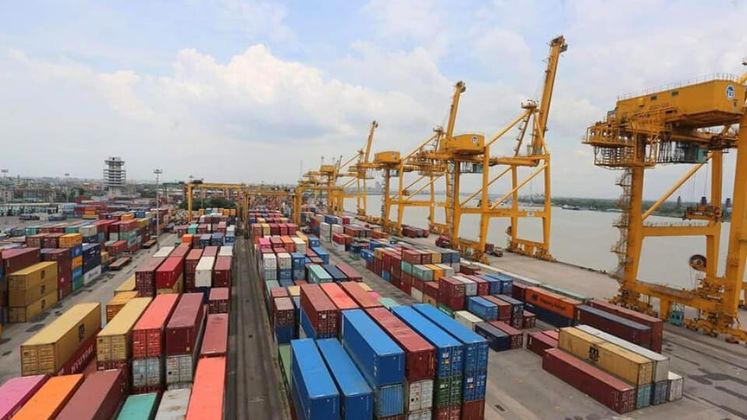
Chittagong Port is grappling with significant operational challenges due to an unprecedented increase in empty container storage, prompting authorities to contemplate a rise in storage charges to address the congestion.
In a recent notification issued by the Chittagong Port Authority on Wednesday, officials revealed that the number of empty containers stored within the port yard has repeatedly exceeded its maximum capacity, resulting in delays in critical activities such as the delivery of imported full container loads (FCLs) and the stacking of newly unloaded containers. The congestion has been attributed to a slowdown in the timely removal or transfer of empty containers to off-dock depots.
The Port Authority warned that unless the situation improves by August 7, it may implement higher storage rates for empty containers to incentivize faster clearance. Authorities are also monitoring the situation closely and have urged all stakeholders to take immediate measures to expedite container removal.
Currently, the port charges US $ 6 per TEU for the first seven days of storage, increasing to US $ 12 per TEU from the eighth to the twentieth day, and then to US $ 24 per TEU per day thereafter. These rates apply similarly to cargo containers, with charges commencing four days after landing. Since March 2025, the port has been imposing quadruple charges on cargo containers to help reduce congestion.
Port Secretary Md Omar Faruk noted that typically, empty containers account for around 10% of total containers at the port. However, this figure has surged significantly in recent weeks. He added that the Port Authority has the authority to increase storage rates up to four times if necessary.
As of today, the port yard holds approximately 39,785 TEUs against a maximum capacity of 53,518 TEUs. Of these, 5,550 are empty containers, a rise from 4,158 TEUs recorded just a month ago. The slowdown in empty container transfer has also strained the system of 19 private inland container depots (ICDs) in Chittagong, which are responsible for dispatching containers carrying imported goods and less-than-container-load (LCL) cargo to off-docks.
The congestion at Chattogram Port underscores the pressing need for efficient container management to maintain smooth import-export operations amid growing logistical pressures.






